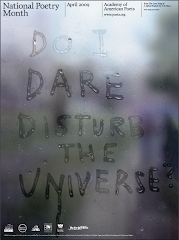Paulo Freire, author of The “Banking” Concept of Education, claimed “Education is suffering from narration sickness” (Freire 68). He accuses teachers of turning their students into “receptacles” and “depositories” (Freire 69), explaining that students fail to “develop the critical consciousness which would result from their intervention in the world as transformers of that world” (Freire 70). Freire offers a counter-style of teaching; problem-posing education, where “they come to see the world not as a static reality, but as a reality in process, in transformation” (Freire 76).
Like-minded teacher, Gloria Watkins expresses similar views with a feminist twist in her essay, Toward a Revolutionary Feminist Pedagogy. She suggests, in order to create more transformative education experiences, our professors “should engage students in a learning process that makes the world ‘more rather than less real’” (Watkins 81). In order to achieve this subjective knowledge through teaching, “We must be willing to deconstruct this power dimension, to challenge, change, and create new approaches” (Watkins 84).
150 word comparison of freire and hooks
and it totally is . . . without the in-text citations. because then its 162 words.
if we're counting. and we most certainly are.
Subscribe to:
Post Comments (Atom)















just to give you an idea of how hard it was to get down to 150 and still have everything be cohesive -
ReplyDeletePaulo Freire, author of The “Banking” Concept of Education, claimed that “Education is suffering from narration sickness” (Freire 68). In his essay, he accuses teachers of turning their students into “receptacles” and “depositories”(Freire 69), and further explains by stating that “The more students work at storing the deposits entrusted to them, the less they develop the critical consciousness which would result from their intervention in the world as transformers of that world” (Freire 70). Freire offers a counter-style of teaching to the traditional narration technique; he calls it ‘problem-posing education’. He defines it as a type of learning where “men develop their power to perceive critically the way they exist in the world with which and in which they find themselves; they come to see the world not as a static reality, but as a reality in process, in transformation” (Freire 76). This new movement in teaching students has been offered by Freire in theory, but its practice ultimately depends on our awareness and attention to “the men-world relationship” (Freire 77).
Like-minded writer and teacher, Gloria Watkins expresses some similar views with a feminist twist, in her essay titled, Toward a Revolutionary Feminist Pedagogy. Watkins recalls her high school education experience and how the work of her teachers “was truly education for critical consciousness” (hooks 80). She writes that the classroom “should be a place where . . . there is visible acknowledgment of the union of theory and practice, where we work together as teachers and students to overcome the estrangement and alienation that have come so much the norm in the contemporary universities” (hooks 81). Hooks credits her passion for teaching and her critical conscious approach to the world, to her feminist teachers. She also suggests that our education systems require less domination in the classroom, which could be achieved by teachers not “assuming the posture of all-knowing professors” (hooks 82). Ultimately, hooks voices that in order to achieve a better education experience “We must be willing to deconstruct this power dimension, to challenge, change, and create new approaches” (hooks 84).
i wrote summaries without limiting myself. 343. ugh.